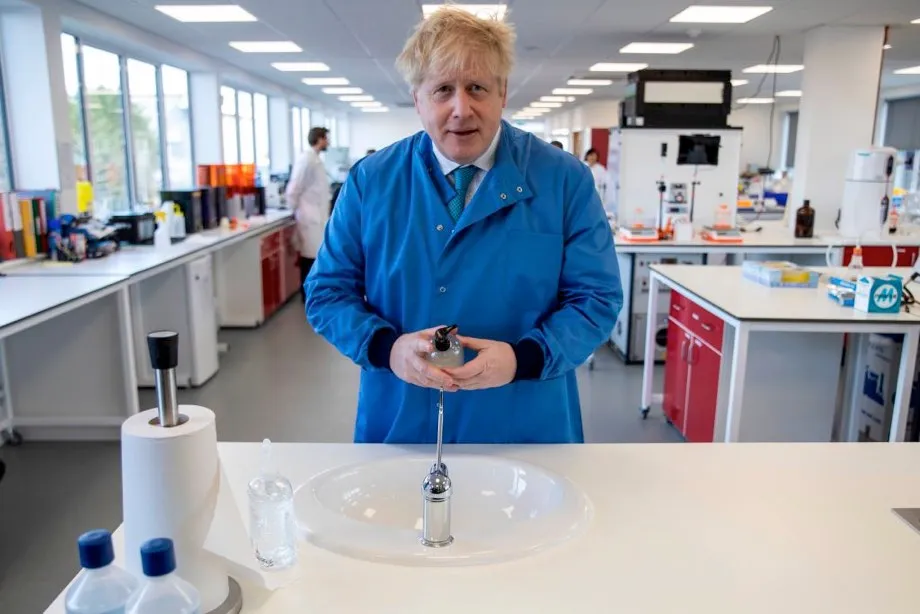Prime Minister Boris Johnson announced on 24 March that the government had ordered 3.5 million antibody test kits, which are able to identify in 10 minutes whether someone has had the COVID-19 infection.
The kits can be used safely, involving just a finger prick to produce a blood sample that is then tested for antibodies specific to the novel coronavirus.
A positive result on the test would mean that a person had successfully fought off the SARS-CoV-2 virus and would have some immunity against future infection – though for how long that immunity would last is still unknown.
For some viruses, such as smallpox or polio, one instance of infection is enough to give a person lifetime immunity. Others, such as the norovirus, result in immunity against reinfection for up to two years, and for common colds caused by other coronaviruses, the body’s immunity can fade after just months.
Read the latest news about the coronavirus pandemic:
- Coronavirus 'most infectious' in first weeks of symptoms
- Social distancing measures working, study suggests
- Behavioural scientists 'very concerned' about mass coronavirus testing
The antibody tests purchased by the government cannot detect a current infection, instead they are used to indicate the presence of COVID-19-specific antibodies in a person’s blood. An antibody is produced by the body as part of an immune response and is specific to fighting a particular pathogen.
It is thought that, once a person with coronavirus antibodies has been identified, their blood plasma could be used as a treatment for others infected with the virus. In the US, the FDA has announced it is planning to use COVID-19 plasma to treat patients with serious or immediately life-threatening COVID-19 infections.
As soon as the antibody tests have been validated, it is likely that they will be distributed for use first by key workers, before being made available to the wider public.

“[The tests] will tell us who among individuals in our NHS and other essential workforces are immune to the virus and, therefore, safe to return to their vital work,” said David Wraith, Director of the Institute of Immunology and Immunotherapy at the University of Birmingham.
Following that, the tests could be given to people who are particularly vulnerable, said Paul Hunter, a Professor in Medicine at University of East Anglia. If they were shown to be immune, they could relax the measures at which they are self-isolating. Knowing who is immune will help those people stop worrying whether or not they are putting themselves or their families at risk, Hunter said.
How to protect yourself during the coronavirus pandemic:
- Coronavirus: Will COVID-19 become a seasonal virus?
- What nature can teach us about friendship in the time of coronavirus
- Is hand-washing really the best thing we can do to stop the spread of COVID-19?
- 10 science-backed tips to help you work from home successfully
These tests will also be of use when a vaccine first becomes available, as it will initially be in short supply. “An antibody test would allow the vaccine to be used just for people who are not already immune,” said Hunter.
It is not yet known when the tests will be ready for distribution. Professor Neil Ferguson, an epidemiologist who has been advising the government in its measures against the coronavirus, said they would hopefully be ready in “days rather than weeks”.
If the tests are proven to be effective, members of the public would eventually be able to go to a local pharmacy to have a finger-prick done.
How does the antibody test work?
The antibody tests purchased by the government are known as serological, meaning they test blood serum – a component of blood plasma.
A blood sample is collected by pricking the end of the patient’s finger using a small needle.
The sample is then placed on a surface that contains proteins that mimic those found on the SARS-CoV-2 virus.
If there are COVID-19 antibodies present in the blood plasma, these bind to the proteins on the test and trigger a colour change in a small window, similar to that of a pregnancy test. This is considered a positive result.
No colour is a negative result, which would indicate that the person has not produced antibodies to fight the coronavirus.
Unfortunately, a negative result on the antibody test does not necessarily mean that the individual is definitely not infected. If a person had recently contracted the virus, perhaps within three days prior to taking the test, their body may not have yet started producing antibodies at a high enough concentration to be detected by the test.
Read more:
